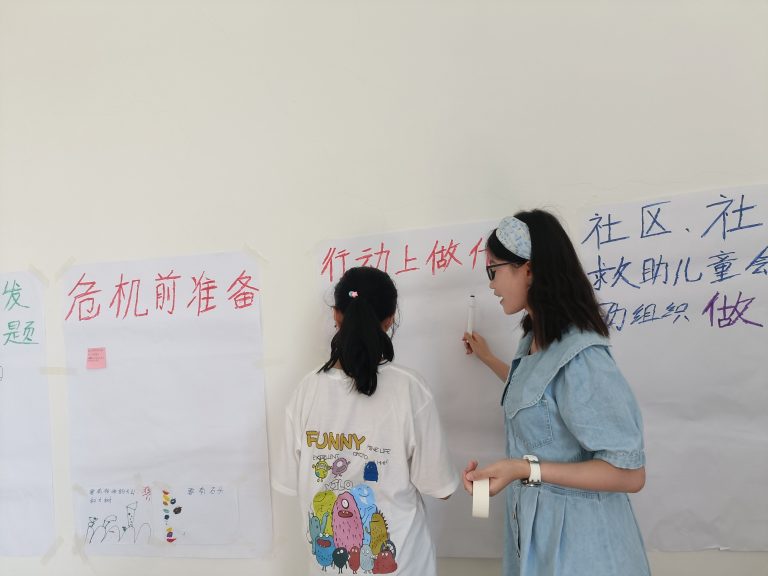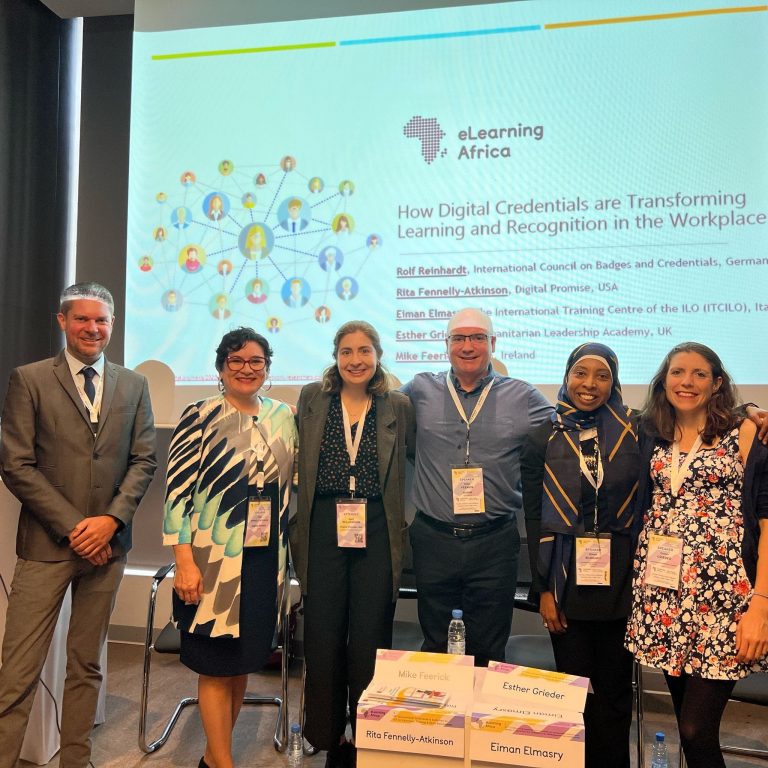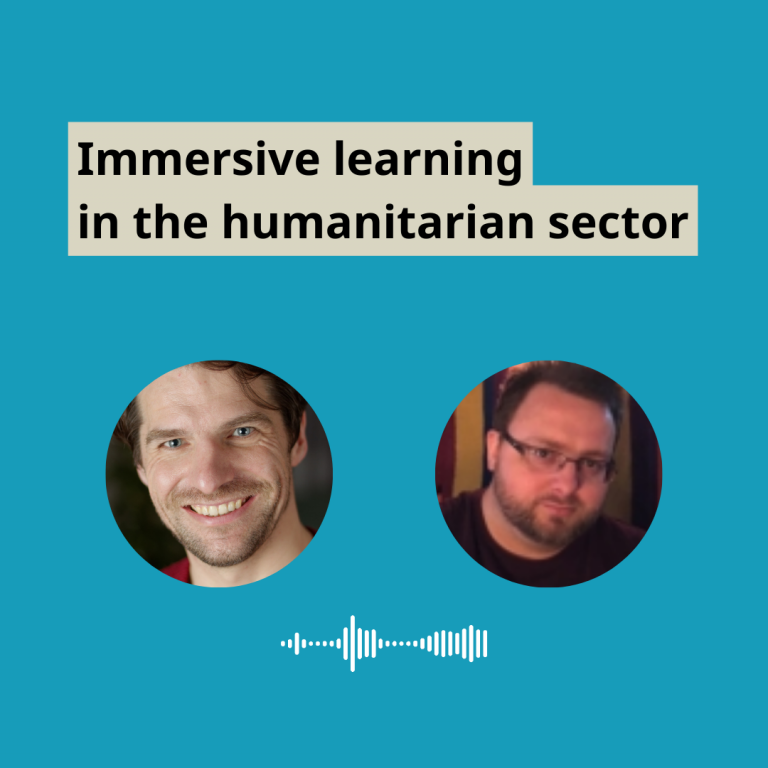
Have you ever wondered about the role of research in the humanitarian sector? Keen to learn more about the plethora of humanitarian learning options available – ranging from asynchronous study and stackable learning through to free bite-sized courses with digital badges?
Ka Man Parkinson (Communications and Marketing Advisor) was delighted to recently speak to humanitarian learning experts Dr Nazanin Zadeh-Cummings (Associate Director of Research, Centre for Humanitarian Leadership) and Esther Grieder (Global Communities and Partnerships Lead, Humanitarian Leadership Academy) to learn from their combined expertise in humanitarian training pathways.
In an accessible and engaging conversation recorded for a new podcast episode for the Humanitarian Leadership Academy, Nazanin and Esther guide us through the changing humanitarian learning landscape – from research through to practical, lifelong learning approaches.
Read a preview of the conversation below and listen to the full podcast episode now available on Spotify and Buzzsprout.
Nazanin, so when people think of humanitarians, they may think of a first responder. What do you believe is the role and relevance of research in the humanitarian space?
I love this question because I love research!
So research is the creation of new knowledge, and this new knowledge is borne from evidence, it’s borne from rigorous forms of inquiry, and it can suggest new pathways or new ways of working or new ways of approaching problems that are more effective, more efficient, and maybe just more equitable. So I think research can really help us make a better humanitarian sector, make better humanitarian ways of working, make better humanitarian outcomes, and better serve people living through humanitarian crises.
This research might be quantitative, so it may be looking at things like a nutrition intervention and wondering, well, what is the effect of this nutrition intervention? What percentage of children does it impact and how does it impact them? Or it might be more qualitative. So it might be asking, well, how do parents feel about this intervention? How do they feel about accessing the intervention? I think it’s important to note that there’s really a need for both of these types of research – both the qualitative and the quantitative are both needed for better humanitarian outcomes.
The final point I’ll make on this question is I think that research needs to be accessible to be used for people that are working in crises and emergencies that don’t have the luxury of time, you know, to flip through PDFs at their leisure. Information needs to be accessible and needs to be delivered to end users in a way that’s valuable to them. So I think that’s also a bit of a reflection of perhaps how researchers can best serve the humanitarian sector as well as how humanitarians can use research.
Esther, what do you think are the main advantages or benefits of taking a lifelong learning approach to upskilling as a humanitarian?
Well, I think the world of work for everyone – due to new technologies and all kinds of things including Covid – is changing at an accelerating pace. But I think this is particularly true – and it always has been particularly true – of the humanitarian sector. And I think it’s just a feature of work in the sector that things move very fast and there are always new things to learn. At the moment, for example, there are so many new technologies that are potentially offering new ways to respond to emergencies. There are new challenges, for example, caused by climate change, more prolonged conflicts, cybersecurity.
There’s really kind of upheaval in the sector as a whole in terms of the way that we work in the sector, recognition that we need to start to work differently, and we need to address some of the kind of power dynamics in the sector.
So there’s all this change in the sector all the time. And the people working in it have to be able to respond to that, so it’s essential that they’re able to access new learning on an ongoing basis, and that that can be produced in response to new challenges that come up, that learning can be made available and that then it can be put into practice by humanitarians.
About the podcast guests
Dr Nazanin Zadeh-Cummings is the Associate Director of Research at the Centre for Humanitarian Leadership, a Deakin University/Save the Children Australia partnership, and Senior Lecturer in Humanitarian Studies at the School of Humanities and Social Sciences at Deakin University.
Nazanin’s main areas of research are humanitarian education and training, and humanitarian engagement in North Korea. She holds a PhD in Asian and International Studies (City University of Hong Kong), a joint Master’s in International Humanitarian Action (Ruhr-Universität Bochum/Université catholique de Louvain), a Master’s (Honours) in International Relations (University of Edinburgh), and a Graduate Certificate in Higher Education Learning and Teaching (Deakin University). Nazanin is from Massachusetts, USA.
Esther Grieder is Global Communities and Partnerships Lead at the Humanitarian Leadership Academy. She holds 20 years of experience in the international development and humanitarian sectors, working primarily on education, youth, health and humanitarian issues.
Esther has worked at the Humanitarian Leadership Academy since 2016. She was responsible for developing, launching and growing HPass, a platform enabling humanitarians to showcase verifiable evidence of their skills and experience using digital badges. She holds extensive business development and partnerships experience, and enjoys figuring out how organisations can work together to turn good ideas into great social initiatives. Esther holds a BA and MA in History, and is based in London, UK.
Listen to the podcast episode
Spotify
Buzzsprout
Resources and links signposted by Esther and Nazanin in the podcast episode
Kaya
HPass
Centre for Humanitarian Leadership and Deakin University
International Humanitarian Studies Association’s database of humanitarian studies organisations
Mastersportal.com
Lifelong learning infographic on the HPass website


